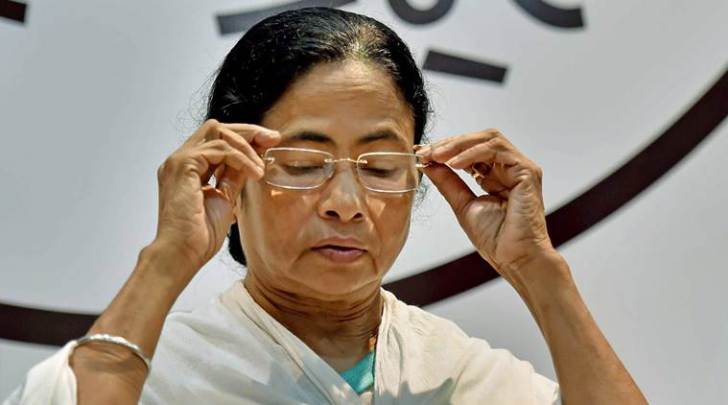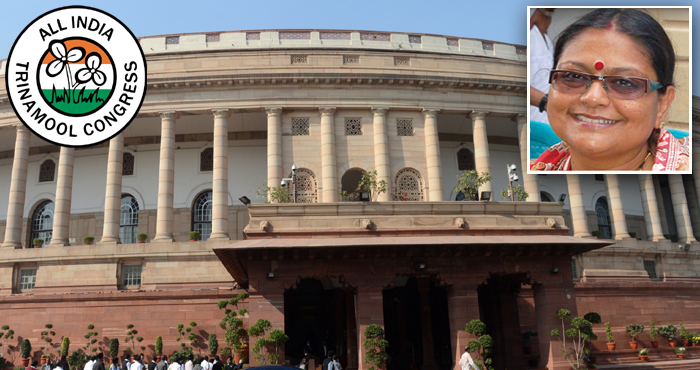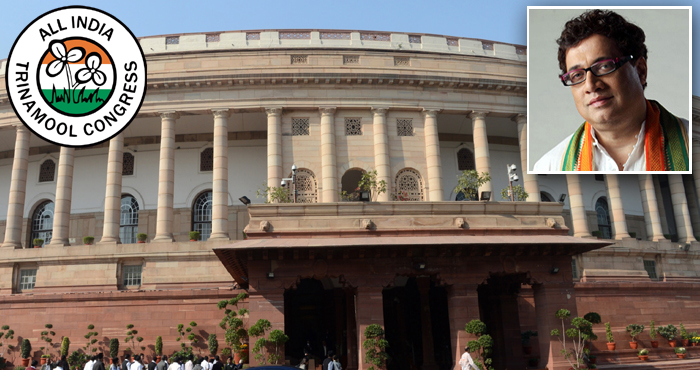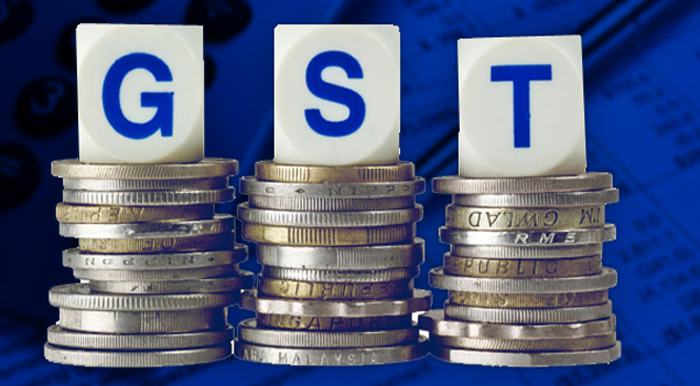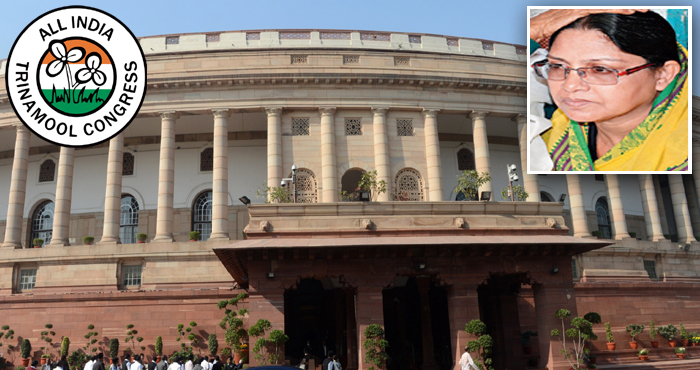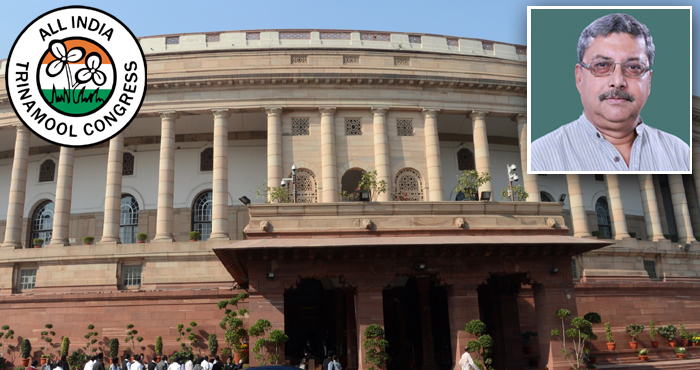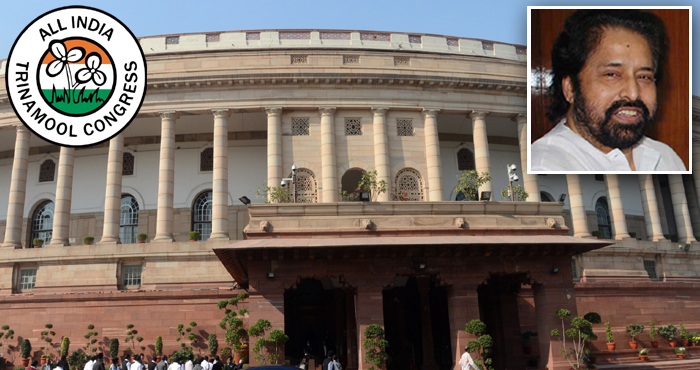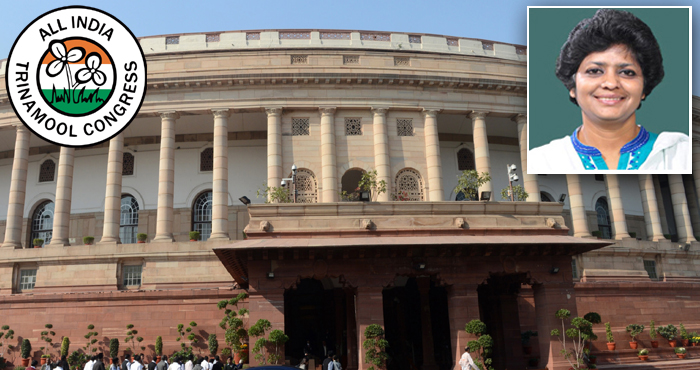Sir, I’m still often asked, is your party supporting the Constitutional Amendment on GST? I’m sad actually that I’ve been asked this question, because we should put this question to the Government and the principal Opposition party. We often get confused when they are supporting and when they are not; what their stand is depends on where they sit.
Trinamool consistent on GST
There are many of us in the middle who have been the most consistent on this issue, like my party, the Trinamool Congress. In our 2009, 2011, 2014 and 2016 manifestos we have promised GST – we promised it as an idea and also as an implementation. But we’ll come to that. But when people get up here to speak, especially when they are such articulate lawyers, I feel like a teenager in their presence.
Girgit Samjhauta Tax
I’m going to talk about the details of this Bill – I had great experience being on the Select Committee and I’m going to talk about that in great detail – but before we get into the nitty gritty of the Bill, Sir, there is the politics of the Bill. And sometimes, when it’s convenient, the Government or the principal opposition party do not want to discuss the politics of the Bill.
When you ask someone what is GST, they’ll probably tell you it’s Goods and Services Tax; but GST could also be interpreted as Girgit Samjhauta Tax, because the way these two parties have behaved, it has been ten years of ping-pong. The Olympics are coming, they would have won the us medals in ping pong, Sir.
Ping-pong politics
Now let me tell you about this ping-pong match between the treasury and the Opposition benches.
I would like to read from the election manifesto of 2009 of a party; page 19, point 6: “CST will be abolished and GST would be rationalised between 12% and 14%.”
Whose manifesto is this? The BJP. They haven’t taken it off, it’s still on their site.
My senior learned friend, now the Leader of the House once said: “We won’t be fairly treated. We wi’ll cut off our own hands, our constitutional authority and hand over all fiscal powers to the Centre.”
Mr Jaitley has said many things about FDI in retail also, when he was Leader of the Opposition. But as I said, they take their stand based on where they sit, Sir. And they are such great lawyers, you give them any brief, they’ll twist it to meet that only, with all due respect.
Sir, there’s a very interesting quote I found from 2011, Sir.
It says, “The new Constitution amendment draft proposed by the Government of India, is retrograde. It is completely against fiscal federalism.”
This was said by Saurabh Patel, Finance Minister of Gujarat in 2011. Now, I’ve forgotten who the Chief Minister of Gujarat was in 2011. but this was said, Sir. And, the now Honourable Prime Minister said in February 2014, “Without proper IT and infrastructure, GST is impossible to implement.”
Sir, this politics of GST is very very important because for two years, two Houses were stalled by two abbreviations by the BJP – one was GST and the other one was FDI. So, Sir, their memory is very very short.
Go Slow Tactics
Sir, we’re done with the BJP. Now we get to this side. My Chidambaram used a very nice phrase – GST, he said, was ‘Good Sense Triumphs’ – nice one, Sir. But our interpretation, or your interpretation when your colleagues came to the Select Committee, was not ‘Good Sense Triumphs,’ it was ‘Go Slow Tactics.’
This is exactly what your colleagues did in the Select Committee. And all of us here in the middle, who are not the Congress or the BJP – the SP, the BSP, the BJD, the DMK, the NCP, the CPI, all of us saw the go-slow tactics. Unfortunately the Select Committee is not telecast on prime-time television, these parliamentary debates are.
Implementation
Mr Chidambaram today made the point about his party supporting the idea of GST. Of course, we are also for the idea. But only having an idea is not good, we are for the IMPLEMENTATION of GST. And Mr Chidambaram made a nice point about the triangle. The triangle has to be decided between the Finance Minister and the States and the people. Yes, Sir, I want to tell the people, we also believe you have to find a solution. The difference between us and the Congress, we believe, the bottom of the triangle is the people.
GST cap
All of us are on the same page on this. Eighteen per cent cannot go into that constitutional amendment. You spend every minute of the Select Committee stopping it. The Empowered Committee of Finance Ministers, with 21-22, are unanimous that you cannot have the 18% either in the constitutional amendment or in the GST Bill.
But the language I was hearing today is the language of ‘hold on, we let you play the first innings, when it comes to the second innings, we’ll try and block you.’ I think if the tone is conciliatory, and the tone ought to be conciliatory, this Parliament must debate, must deliberate, must legislate, good – but we also need to implement, we must implement.
Role of Rajya Sabha
Sir, now let’s come to the role of the Select Committee. Thank heavens for the Rajya Sabha, because if there was no Rajya Sabha, there would have been no Select Committee, and then you would have not got the wisdom of the Rajya Sabha.
Let me give a quote to you, Sir. It was said in April 2016 (very recently, Sir) –
“To what extent the Upper House is going to be used to block economic decision-making? In Australia, the UK, Italy, the debate is on, because ultimately, the weight of a directly elected House will always have to be maintained”.
This was said by the Leader of the House. Mr Arun Jaitley, if you are being in a conciliatory mood this is not what the Leader of the House could have said. You used the Lok Sabha to bulldoze legislation. The Bill came to the Rajya Sabha, there were points made, everyone had points to make, and based on these points, Sir, there were lots of changes to the legislation.
Consensus among States and Centre
Yes, there was the exempted category on petroleum. States had a problem with that, and we appreciate that it was taken care of. So were tobacco products, so were inter-State transactions, so was the dispute redressal mechanism; we did not want a separate authority. All that is fine. We appreciate that the Government reached out to the States, worked with the States, worked with the Finance Ministers.
Compensation
Sir, but on the ground I want to flag one issue regarding implementation. It is the issue of compensation for CST; I am giving you one example because it concerns my State. I am trying to flag how difficult it is to implement this. Sir on CST, Centre owes my State dues worth Rs 6,500 crore. Not only my State, Odisha has about is also owed Rs 3000 crore. Punjab, Uttar Pradesh, Assam and Telangana all have a lot of outstanding dues, Sir, because of CST.
Sir, in Clause 19, we did make the point, the word MAY will become SHALL and the compensation will be taken care of (up to was dropped) for five years. We appreciate that, Sir. The word ‘full’ compensation was not used in the legislation. I would request the Finance Minister to please clarify that on the floor of this House.
Clause 10
Sir, I want to refer one point about The Constitution One Twenty-Second Amendment Bill as reported by the Select Committee of the Rajya sabha. Here if you look at Clause 10 it is not what was unanimously recommended at the Select Committee. I will read the Clause 10 which was Select Committee Recommendation – “The goods and services tax levied and collected by the Government of India, except the tax apportioned with the States under clause (1) of Article 169A, shall also be distributed between the Union and the States in the manner provided in clause (2).”
Dual control
Sir, small business with less than Rs. 1.5 crore turnover should be kept out of dual control and once that figure goes above Rs 1.5 crore then it should be done jointly between the Centre and the State. Sir, this is very crucial because we don’t want to go into November, and then hit a roadblock for rolling out GST in April, 2017. I need this clarification. I am very scared when I hear April, 2017. Because it is April Fools’ Day. And this ping pong match cannot continue any longer. We need to implement GST in April, 2017. That’s why I am being specific, Sir.
Registration and Compliance
Sir, there are other issues on the implementation. Through you, Sir, I want to flag these issues for the Finance Minister. One of these is not a legislative issue but concerns implementation – GST registration. People will be registering not once not twice but three times in a state.
GST compliance also cannot be 4 or 5 per cent. Sir there is ambiguity, and I don’t want to get technical in the discussion, of supply and value of taxable supply. I think in the implementations, Sir, we seriously need to look at this.
Empowered Committee
Sir, I would be failing in my duty if I did not put on record here the great job done by the Empowered Committee of Finance Ministers across the States. It is my pleasure and privilege that my colleague Dr Amit Mitra, the Hon’ble Finance Minister of Bengal, in 150 days led the team and developed a very broad consensus among the States.
Move over electoral politics
Sir, I was wondering if the politics of the GST will continue into November or from this being a ping-pong match it will become a cricket match where you will play the first innings and then in the 2nd innings it will stop because of rain or other reasons.
Sir, so I did a research on a few countries where GST was passed and in one or two years elections were held. To assure the BJP, after the GST was passed the ruling party won the elections in Australia, New Zealand, Russia, Argentina and Indonesia. That was the good news, now the bad news. There are also some countries where after GST was implemented, the elections were lost – Brazil, UK, Germany and South Africa. So, it’s a 50-50 toss. So my appeal to the BJP and the Congress is that don’t let those election results bother you because they could go either way; bring in this GST.
Bottomline
Sir, I will end with a little story. Sir, in 2005, there was a small boy in class X in a little-known school in Delhi – Saviour School. Sir, he was born around the time when the GST concept was first introduced. This boy is now winning us great victories in cricket matches. He is Virat Kohli.
There are millions of Virat Kohlis who are looking at us today. For their sake and for the sake of India tomorrow we need to deliberate, we need to debate, we need to legislate and we need to implement this GST. The faster we do it the better.


